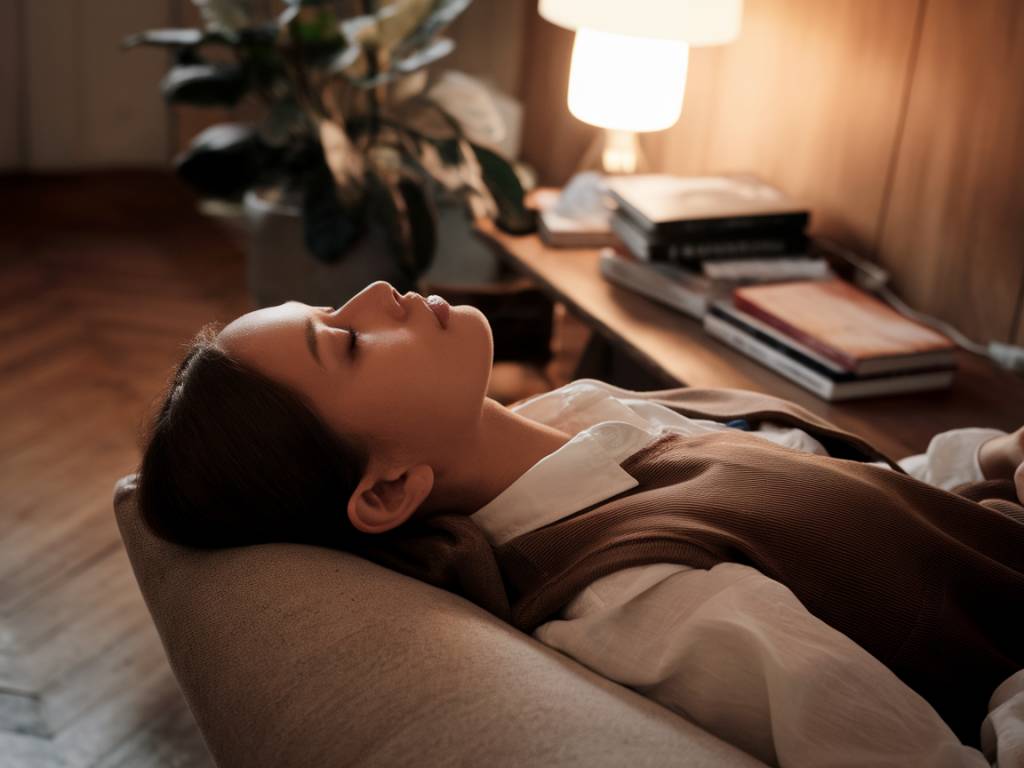The Link Between Sleep and Mental Health
Have you ever noticed how everything feels harder after a bad night’s sleep? That looming work deadline seems more stressful, or even the smallest mishap—like dropping your coffee—feels catastrophic. This isn’t a coincidence. The relationship between sleep and mental health runs deep, and neglecting one can negatively impact the other. Let’s explore how they’re connected and, more importantly, how you can use this knowledge to create a healthier, happier home and life.
Why Does Sleep Matter for Mental Health?
Sleep isn’t just about letting your body rest; it’s about letting your mind reset. During sleep, your brain gets a chance to process emotions, eliminate toxins, and reinforce memory. Think of it as a nightly « brain cleanse. » When this process gets interrupted—whether by lifestyle choices, stress, or medical conditions—your brain doesn’t function at full capacity, and that can spark issues with your mental health.
For example, chronic sleep deprivation has been linked to conditions like anxiety and depression. It can also lower your emotional resilience, meaning you’re more likely to feel overwhelmed by day-to-day challenges. Have you experienced that loop where stress keeps you up, you sleep poorly, and the lack of rest makes you more stressed? You’re not alone—it’s a vicious cycle many of us know too well.
The Science: How Sleep Affects Your Brain
To understand the connection fully, let’s dive into a bit of biology. While you sleep, certain activities kick into gear:
- REM Sleep: This is the stage when your brain processes emotions and dreams. It’s crucial for emotional regulation. Lack of REM sleep has been tied to increased feelings of irritability and stress.
- Non-REM Sleep: During this deeper stage, your body repairs itself, and your brain consolidates memories. This helps you wake up feeling mentally sharper and more balanced.
- Cortisol Regulation: Sleep influences cortisol, the hormone associated with stress. Poor sleep can cause cortisol to spike, leaving you feeling on edge.
These processes underline why skimping on sleep isn’t just about yawning all day—it has real mental health consequences. But don’t despair; there are actionable ways to break the cycle.
Common Everyday Habits That Disrupt Sleep
It’s easy to blame poor sleep on external factors like a noisy neighborhood or a demanding work schedule. But often, the culprits lie closer to home. Here are some habits that might be sabotaging your rest:
- Screen Time Before Bed: Scrolling through Instagram or binge-watching Netflix floods your eyes with blue light, which suppresses melatonin, the hormone that helps you fall asleep.
- Caffeine After 2 PM: Yes, that midday coffee might be your productivity booster, but caffeine lingers in your system longer than you think, keeping your brain wired at bedtime.
- Unpredictable Sleep Schedule: Going to bed at 10 PM one night and 1 AM the next confuses your body’s internal clock, making consistent rest harder to achieve.
- Overloading Your Bedroom: If your bedroom is cluttered or doubles as your home office, it can be a mentally stimulating space rather than a calming retreat.
Small Changes to Improve Your Sleep and Mental Health
The great news is there are tangible steps you can take to foster better sleep and, by extension, better mental health. Little tweaks to your habits and environment can make a world of difference. Here are some strategies to consider:
- Set a Consistent Schedule: Aim to wake up and go to bed at the same time every day—even on weekends. This helps regulate your body’s internal clock.
- Create a Sleep Sanctuary: Dedicate your bedroom solely to rest. Invest in blackout curtains, declutter your space, and pick calming decor that induces relaxation.
- Limit Screen Time: Turn off electronics at least an hour before bed. Instead, pick up a book or try journaling to wind down.
- Mind Your Pre-Bedtime Habits: Avoid heavy meals, alcohol, or caffeine before bedtime, and try relaxation techniques like deep breathing or meditation.
- Consider Natural Boosts: Incorporate calming elements like lavender-scented candles or herbal teas into your routine for an added touch of serenity.
What If Sleep Problems Persist?
If you’ve tried everything and your sleep troubles refuse to budge, it might be time to consult a professional. Chronic sleep issues could stem from conditions like insomnia, sleep apnea, or restless leg syndrome, which require medical attention. Likewise, if poor sleep seems directly tied to your emotional well-being, reaching out to a therapist can be a game-changer.
Sometimes the culprit is less obvious: hidden stressors that you might not even be aware of. In these cases, talking it out—whether with a friend, coach, or therapist—can help you identify what’s really going on beneath the surface.
The Ripple Effect: A Well-Rested You
Improving your sleep isn’t just about making your nights more restful—it’s about upgrading your entire day. When you’re well-rested, challenges feel manageable, moods stabilize, and creativity flourishes. Suddenly, life doesn’t feel like such a grind, and let’s face it, home feels even sweeter when you’re not running on fumes.
So tonight, why not turn off the screens a bit earlier, fluff your pillows, and commit to a full night of restorative rest? Your brain—and your mood—will thank you.
